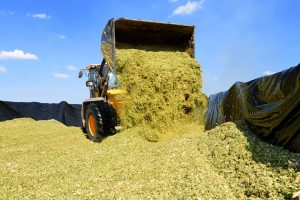
SPEAKING in the European Parliament on Tuesday, Commissioner Phil Hogan unveiled details of the latest EU support package agreed last month.
The Commissioner acknowledged that the crisis facing dairy producers and pig farmers has been ‘Both deeper and longer lasting than any of us had anticipated.’
He said he was pleased to confirm that, on Monday, the Commission adopted three draft Regulations. The first, doubling the intervention ceilings for skimmed milk powder and butter (though this needs official approval from the European Council).
The Commission has also activated regulations that allow producer organisations to plan milk production for a period of six months, and extended the regulations’ scope to include co-ops and other organisations.
Hogan also said: “The Commission has and is continuing to make every effort to lift the protectionist ban imposed by Russia on pig products from the EU.”
Russia introduced a ban on imports of food and farming products from European and North American states in 2014, in response to sanctions imposed as tensions grew over war in the Ukraine.
He added, “Even though so far the Russian reaction has not been very positive, the dialogue remains open.”
Hogan said the Commission is also looking for new opportunities outside Europe; having returned from a trip to Colombia and Mexico (which he described as “encouraging”), the Commissioner will leave for Kazakhstan, China and Japan later this week.
However, though the Commissioner’s “diplomatic offensive” might be yielding promising results, talks with the Mercosur trade bloc have drawn criticism from farm groups and EU Farm Ministers.
At the EU Council meeting on Monday, a large number of EU farm ministers warned that a trade deal could see South American agricultural produce – beef, in particular – flooding the market and undercutting European farmers.
Speaking at the EU’s agriculture council meeting on Monday, Hogan said he remains committed to the trade talks, but promised that negotiators are “very sensitive” to the needs of EU farmers.
EU farm groups have claimed the sector risks losing in excess of 7 billion euros as a result of the Mercosur deal.
Farmers claim the South American trade group is already a major exporter of agri commodities to the EU (accounting for 86% of beef and 70% of poultry meat imports), and have questioned the environmental, traceability and quality standards of meat imports.
On Monday, Thomas Magnusson, president of EU farm group Cogeca, said, “The Commission also promised Ministers it would come up with an impact assessment before proceeding with an offer which it has failed to do.”
Discussing the EU’s support packages, the agriculture Commissioner continued, “Over the past two years, the Commission has mobilised more than €1 billion in additional funding to support farmers, which complements the €56 billion which farmers received last year.
As part of that and in response to a deteriorating situation last summer, you will recall that the Commission took swift and decisive action to provide a €500m support package last September, including €420m in direct targeted aid.”
At a meeting with the Dutch EU presidency on Monday, European farming leader Thomas Magnusson urged Ministers to adopt measures that they agreed on last month as soon as possible including loan/ debt relief for investments.
He warned of the difficult situation on the dairy market, with prices continuing to drop for 25 months and farmers being squeezed by high input costs, and said that the lack of money paid out by member states has seriously reduced the impact of the headline measures.
On Tuesday, Hogan said updated figures should be published later in the day, and added: “Before passing judgement on the effectiveness of either the September package or the proposals I made last month, I would urge you to give those measures the opportunity to work.
In particular, I would point to the fact that, at the end of February, only €162m of the €420m allocated to Member States in September had been spent in 14 Countries.”
Defending the Commission’s response to the crisis, Hogan added: “We have legislative and budgetary constraints within which we must operate, including the market orientation of the CAP and the functioning of the internal market.
“Within those parameters, I believe the Commission’s response has been swift and robust. We have now essentially deployed all of the instruments available to us.”

















Add Comment